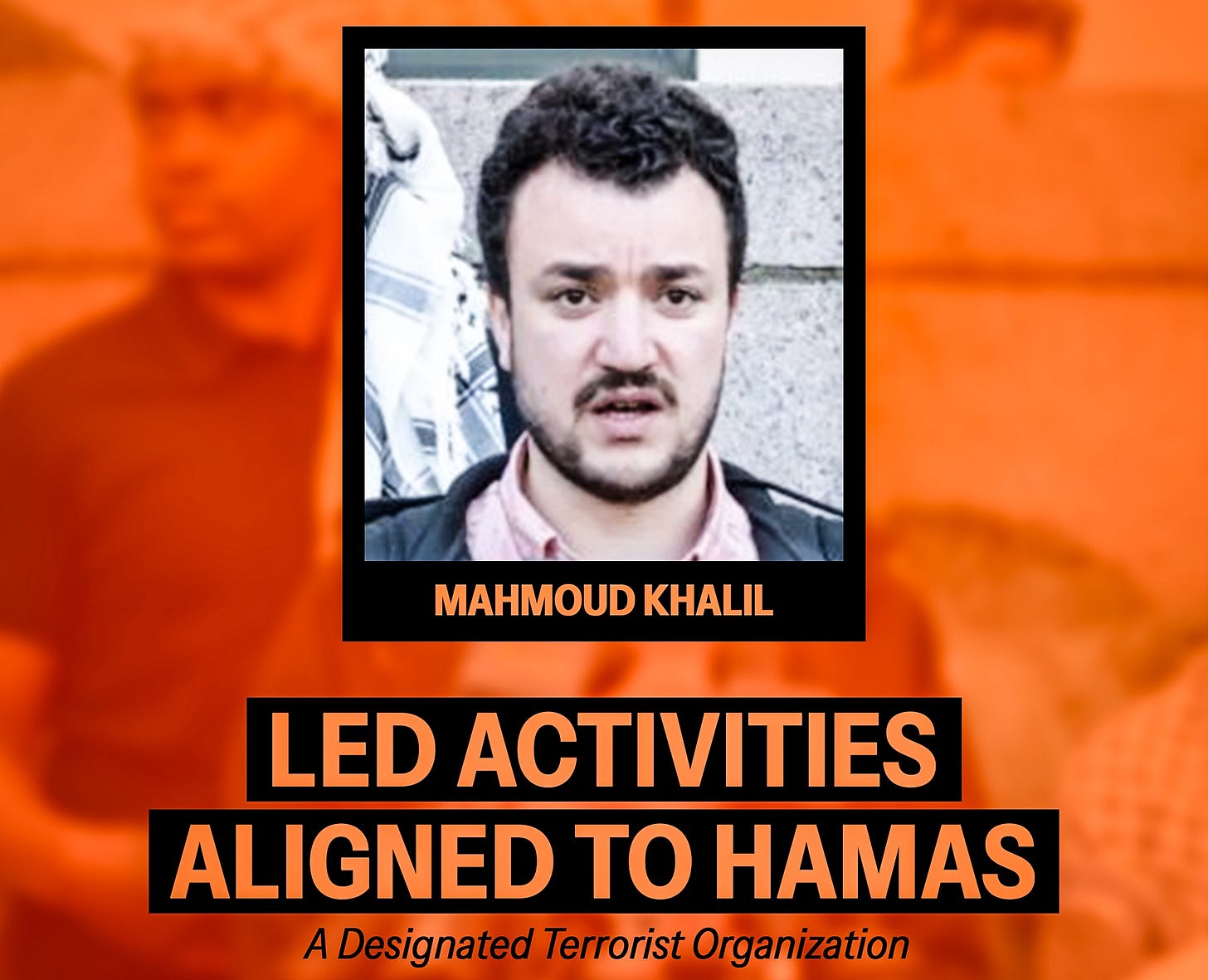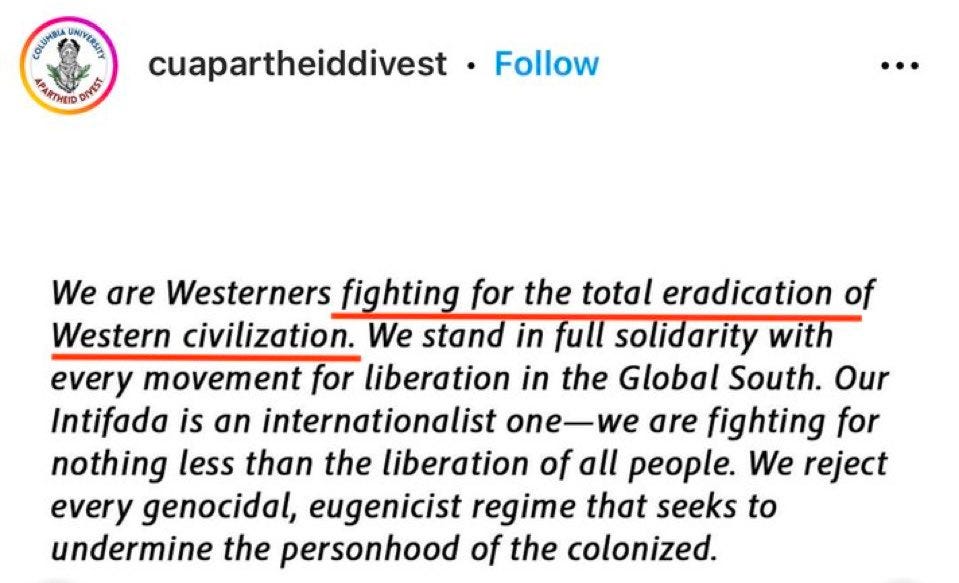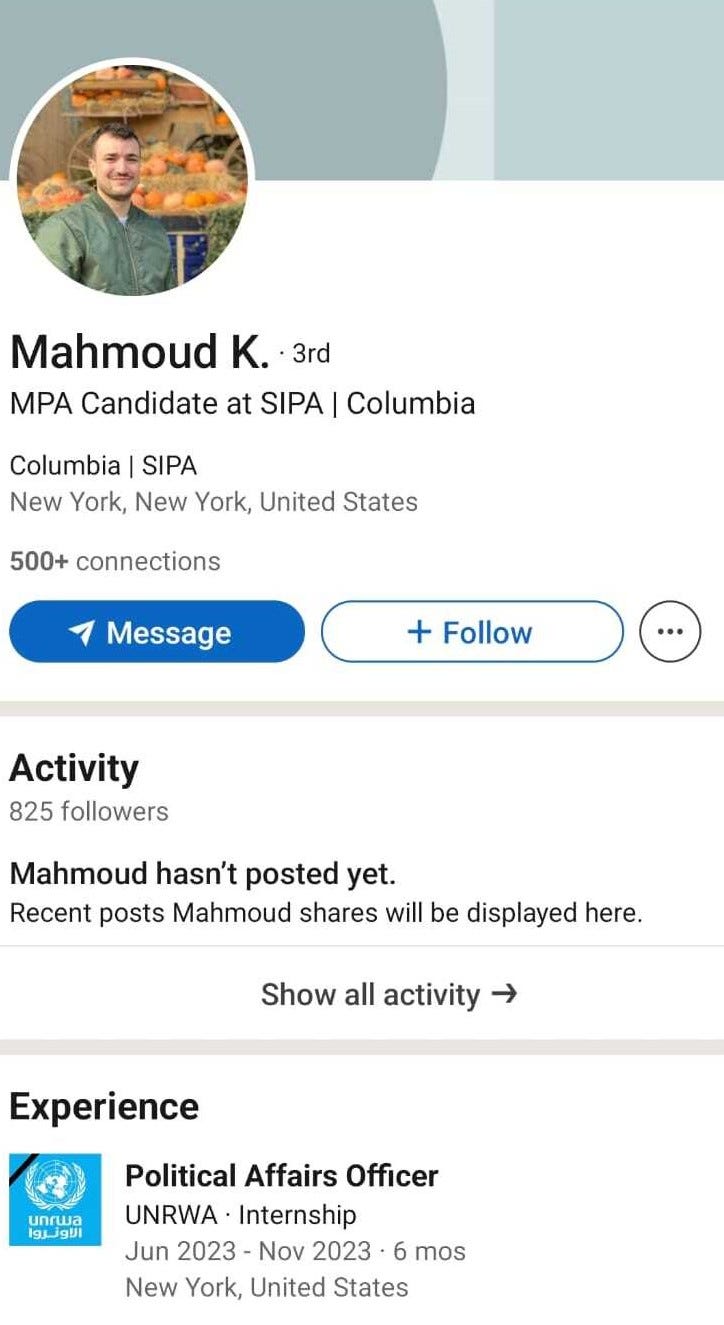Mahmoud Khalil, Columbia University, and Deportation Law: What You Need to Know
Mahmoud Khalil, a leader in Columbia University's pro-Hamas encampment and protest movement, faces potential deportation

On March 09 2025, Mahmoud Khalil was arrested by U.S. Immigration and Customs Enforcement (ICE) after his student visa was reportedly revoked. The Department of Homeland Security (DHS) cited his leadership in activities “aligned to Hamas, a designated terrorist organization,” as a primary reason for his removal proceedings. A judge has since issued a temporary stay on his deportation, ensuring that the matter will proceed through the courts. However, supporters of the potential deportation argue that there is a well-established U.S. immigration law and precedent, particularly under the Immigration and Nationality Act (INA) and relevant Supreme Court rulings.
Attorney Mark Goldfeder, Director of the National Jewish Advocacy Center, has laid out the legal framework supporting Khalil’s deportation, emphasizing the statutory provisions that govern cases involving national security risks and non-citizens who endorse terrorist organizations.
The Legal Basis for Deportation Under INA § 212(a)(3)(B)(i)(VII)
The INA, which governs U.S. immigration policy, provides clear guidelines regarding inadmissibility and deportability of non-citizens. Section 212(a)(3) lists several security-related grounds on which an individual may be deemed ineligible for admission or subject to removal. Among these, Subsection (B)(i) outlines nine terrorism-related grounds, with (VII) stating that any alien who: “endorses or espouses terrorist activity or persuades others to endorse or espouse terrorist activity or support a terrorist organization” is inadmissible to the United States.
Khalil’s activities—his role in leading the Columbia University Apartheid Divest (CUAD) movement, public statements, and active participation in the pro-Hamas encampment at Columbia—place him squarely within this statutory provision, according to supporters of the potential deportation.

Since news of Khalil’s arrest broke, social media users have shared footage of his involvement in the pro-Hamas campus movement. For instance, videos have surfaced showing him participating in the recent takeover of a Barnard College academic building, where activists also distributed pro-Hamas pamphlets, including some calling for “death to America.”

Additionally, the organization Khalil helps lead—Columbia University Apartheid Divest (CAUD)—has openly called for the eradication of Western civilization and explicitly advocated for Palestinian “armed resistance,” a reference to terrorism perpetrated by Hamas and other terrorist organizations. It has also played a key role in the illegal occupation of multiple Columbia buildings over the past academic year.
First Amendment Considerations and the Rights of Non-Citizens
A common argument against Khalil’s deportation is that it violates his First Amendment rights. However, legal precedent establishes that the First Amendment applies differently to non-citizens, particularly in the immigration context.
In Citizens United v. FEC (2010), the Supreme Court affirmed that the government may impose special restrictions on the speech rights of various groups, including foreigners, when justified by a legitimate governmental interest. Likewise, in Turner v. Williams (1904), the Court upheld the exclusion of an anarchist who advocated for the violent overthrow of the government, stating:
“Congress was of opinion that the tendency of the general exploitation of such views is so dangerous to the public weal that aliens who hold and advocate them would be undesirable additions to our population.”
This case underscores the longstanding principle that the government has broad discretion to deny entry or remove individuals whose advocacy threatens national security.
Even under the strict scrutiny standard applied to content-based speech regulations, the government’s interest in national security—recognized as a compelling state interest—would likely justify Khalil’s removal. The INA provision in question is narrowly tailored to apply only to individuals who endorse or support terrorist organizations, rather than broadly restricting political speech.
Material Support and Criminal Implications
The case against Khalil is further bolstered by potential concerns regarding material support for terrorism. Under 18 U.S.C. § 2339B, providing material support to a designated FTO—including coordination, recruitment, or fundraising—constitutes a federal crime. While DHS has primarily framed its case around Khalil’s alignment with Hamas-affiliated activities, further legal scrutiny could determine whether his actions cross the threshold into criminal liability.
Khalil’s Ties to UNRWA
According to Khalil’s LinkedIn profile, he interned as a Political Affairs Officer for the United Nations Relief and Works Agency for Palestine Refugees in the Near East (UNRWA) in New York from June to November 2023. He described his duties as:
“Main tasks included covering issues related to UNRWA at the Security Council and General Assembly.”
In January 2024, evidence emerged that several UNRWA staff members participated in the October 7, 2023, Hamas-led massacre in Israel. As a result, in February 2025, President Donald Trump issued an executive order withdrawing U.S. support and funding for UNRWA, explicitly citing the involvement of some of its members in the October 7 attack and their affiliations with foreign terrorist organizations.
Khalil’s connection to UNRWA raises further concerns regarding his associations and the extent of his political and organizational involvement in pro-Hamas activities. This factor strengthens the government’s argument that he was engaged in activities aligned with designated terrorist organizations.

Judicial Review and Next Steps
A federal immigration judge will ultimately decide Khalil’s fate. The temporary stay does not preclude his deportation; it merely delays proceedings while legal arguments are considered. Given the weight of statutory law and judicial precedent, the U.S. government’s case appears strong. Khalil’s legal team may argue that his activities were political expression rather than direct endorsement of terrorism, but courts have historically deferred to executive and congressional determinations regarding national security in immigration matters. Ultimately, whether Khalil is deported will be determined in court, but the legal justification for his removal is firmly rooted in U.S. law.



This animal is obviously a leader of a sleeper cell for Hamas in the U.S.